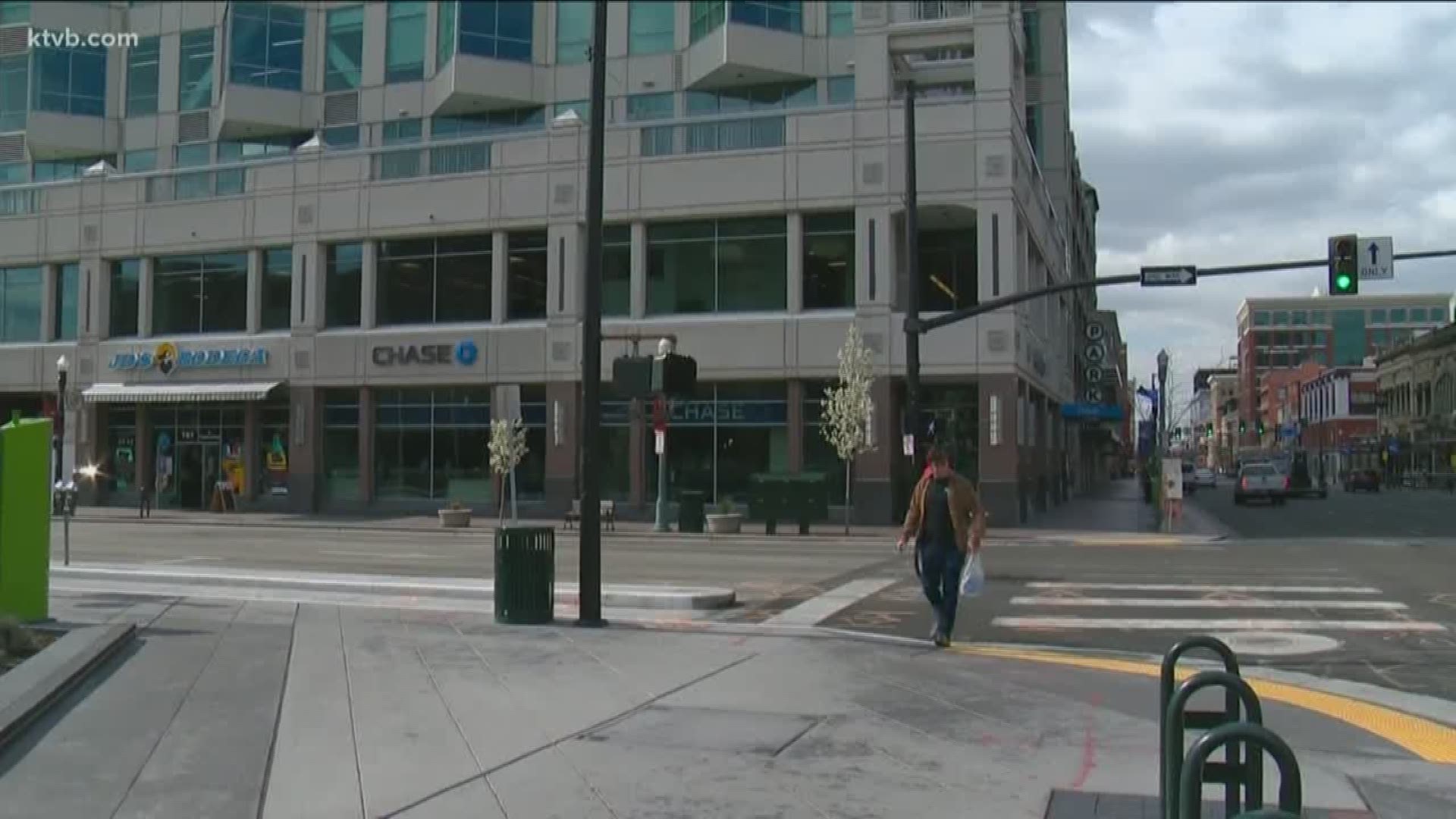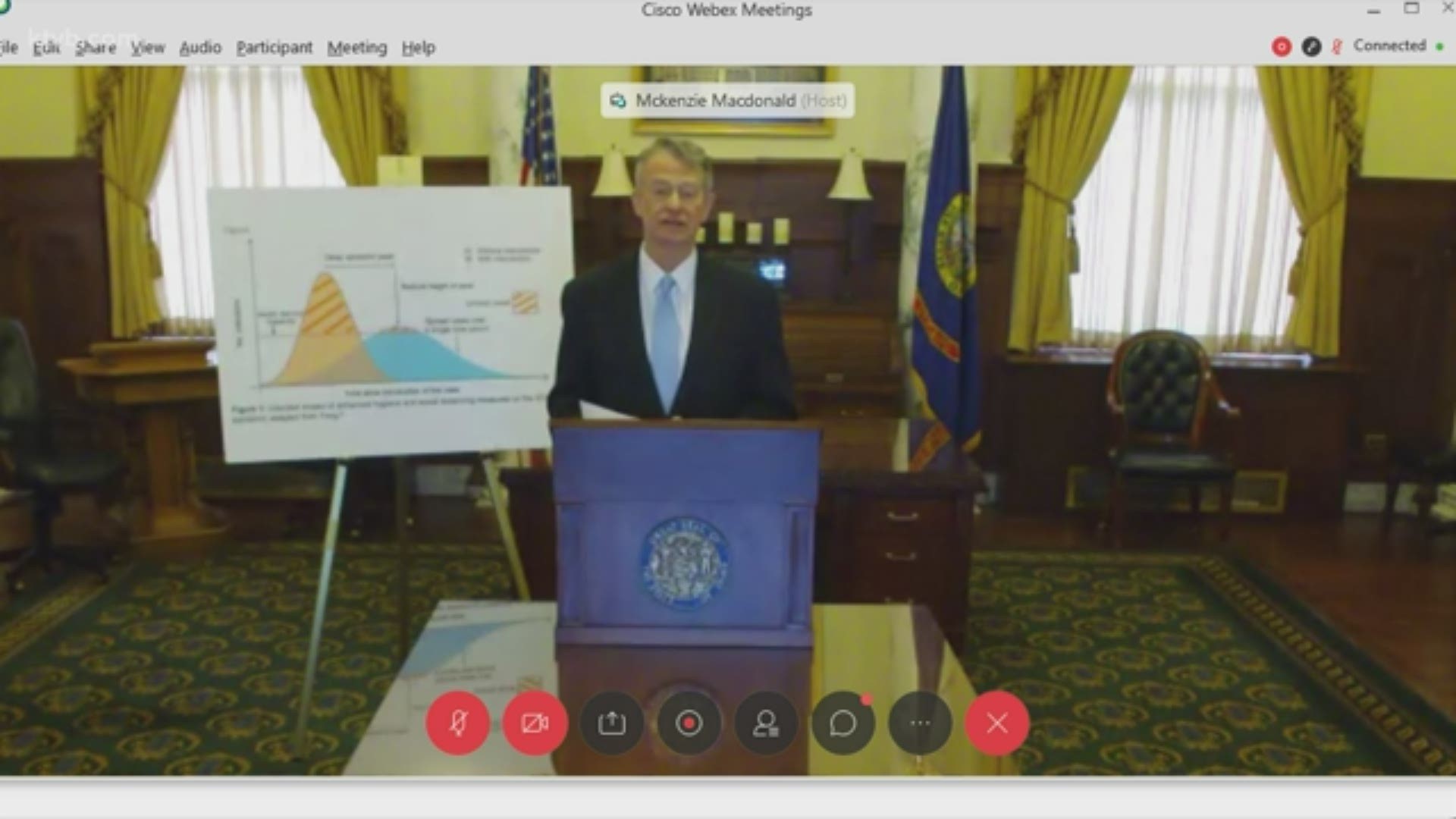BOISE, Idaho — Idaho's statewide stay-at-home order and mandatory business closures implemented to slow down the spread of coronavirus will be extended until at least April 30, Gov. Brad Little says.
The governor made the announcement during a press conference Wednesday morning, the same day his previous 21-day stay-home order was set to expire.
Idaho residents are directed to continue social distancing, wearing masks out in public, and avoiding gathering in groups.
Little said the state should take comfort in the knowledge that social distancing measures are proving effective in "flattening the curve" in Idaho.
"The statewide order is working. Your efforts are working," he said. "We can only imagine how many more cases and deaths we would have today if we hadn't sacrificed together to slow the spread."
Idaho COVID-19 latest: Latest news | Map of confirmed Idaho cases | Stay-at-home order details | COVID-19 resources | Testing sites | Employers hiring | Essential business list | Closings | School closings | Help nonprofits| Golf info | Full COVID-19 coverage
However, the governor said, it is too early to completely lift the restrictions. Without a COVID-19 vaccine or sufficient herd immunity, a second wave of infection could sweep through the state if social distancing and other measures are dropped too early, he said.
In addition to extending the stay-home order, Little also mandated that any out-of-state travelers to Idaho self-quarantine for 14 days after arriving in the state. An exception is in place for those performing essential services, and those who live in one state but work in another.
The governor said he is hopeful that businesses will be able to reopen after April 30.
"Believe me, no one wants to get Idaho back to work more than me," he said. "Our goal is for most businesses to open after the end of the month, but with the understanding that it may not be possible if there is an upward trend in severe COVID-19 cases in Idaho between now and then."
Little noted that his latest order will allow some businesses previously classified as "non-essential" to reopen earlier if they can meet proper social distancing guidelines. He gave the example of flower shops or jewelry stores implementing curbside pickup or delivering items, similar to restaurants that have closed their dine-in areas but continue to sell meals.
Some businesses - like indoor gyms, hair salons and nightclubs - will not be able to meet those requirements, and must remain shut down.
The governor said he is "very sympathetic" to businesses struggling amid the closures or shutting down for good, but said he needed to put the health of Idaho residents first.
It's unclear whether the order will be extended again into May.
"We may have to go through phases of loosening and tightening these measures until we have a vaccine, therapeutics, evidence of immunity buildup and until we expand access to testing," Little said.
The governor acknowledged hearing from some lawmakers and other elected officials who urged him to reopen the state immediately, but said he did not think that was the right decision.
"As I view my responsibility on a statewide basis, I have to do what's right for the people of the state of Idaho. I am keenly aware there are places in the state where, to their knowledge, they don't have any spread. But because we do not have enough testing, we are not fully confident of that, and the other issue is that those are the areas with the least amount of healthcare capacity," Little said.
"I always take their advice and counsel, but I gotta do what I gotta do for the safety of Idaho," he added.
The extended order does not mandate the closure of schools through the end of the school year, although several districts have already announced that students will continue distance learning online until the summer break. It's unclear whether additional districts will also make that decision following Little's announcement.
The governor and his COVID-19 team said they will continue to evaluate the data as it comes in as they make decisions about what can open and when.
"Here's what it comes down to: Idaho will be better positioned for strong economic comeback because we are making difficult changes in how we live and work in the short-term," Little said. "Science tells us that if we don't time these measures right, we could worsen the outcome for citizens' health and the economy weeks and months down the road."
Facts not fear: More on coronavirus
See our latest updates in our YouTube playlist:


